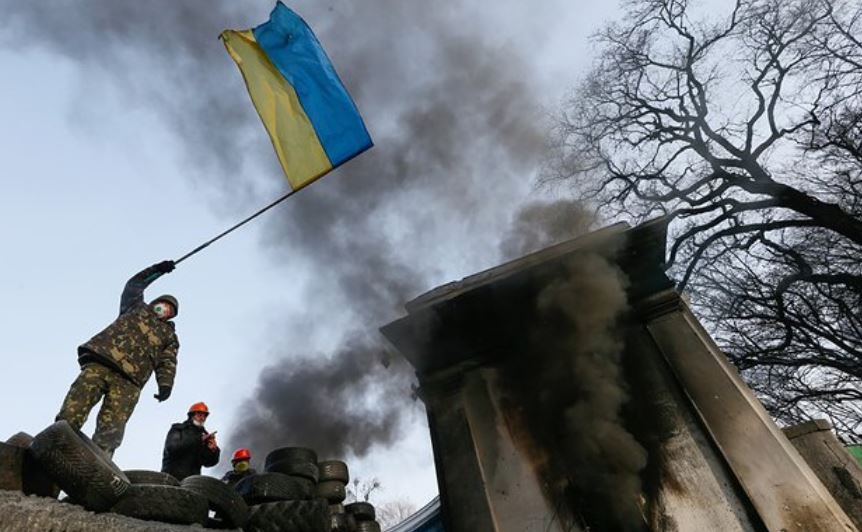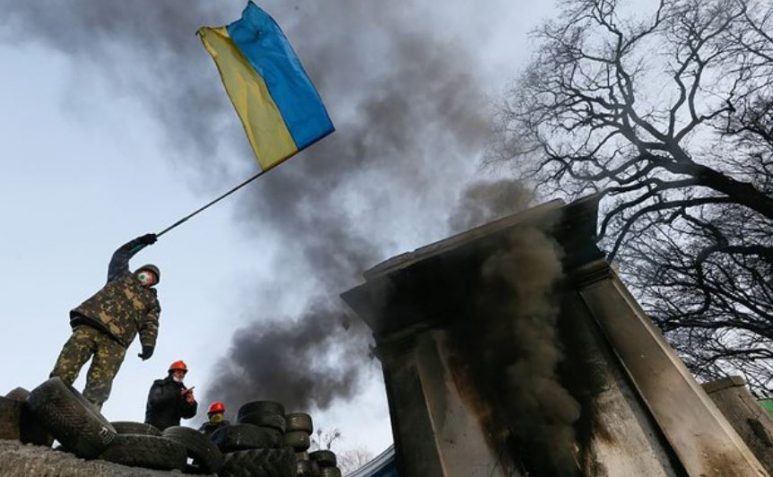Published: 19 May 2014
Region: Worldwide
 It seems like the journalists have not learned a lesson. Truth and facts are again the first casualties of a conflict. Covering the situation in Ukraine media are struggling to stay unbiased and professional and not to slip into the world of propaganda and into the one-sided accusations pursuing either Western or Kremlin agenda.
It seems like the journalists have not learned a lesson. Truth and facts are again the first casualties of a conflict. Covering the situation in Ukraine media are struggling to stay unbiased and professional and not to slip into the world of propaganda and into the one-sided accusations pursuing either Western or Kremlin agenda.

Ukraine might be, as some suggested, on the edge of a civil war; but the media war has been going on for some time now. Political leaders from Russia and from the West use every opportunity to use and, some could argue, abuse the media and its role in the crisis such as the Ukrainian one.
Therefore hundreds of journalists have been awarded by Putin for their “objective coverage” while US State Secretary John Kerry accused the Russian network RT of being a “propaganda bullhorn”. In the similar manner, the accusations for spreading propaganda have been thrown into West’s nest by the Australian journalist John Pilger who reminded us of Henry Kissinger who once said: “It is not a matter of what is true that counts, but what is perceived to be true”.
“Washington and Brussels are the heroes of the Ukrainian saga, if you believe the Western media. Russian President Vladimir Putin is cast as the Big Bad Russian Bear, US President Barack Obama and Secretary of State John Kerry are the Democratic A-Team”, wrote London-based journalist Alistair Sloan in his piece for Al Jazeera. Russian President Vladimir Putin “must tell more lies to his people, shut up his critics – or simply distract the Russian public with military expeditions abroad”, writes Sloan describing how the victimisation of the print press in Russia has grown more violent, control of TV stations has expanded and suppression of dissent has become ever cruel.
Columbia Journalism Review (CJR) highlights the position of the local journalists in Ukraine who are struggling to find a balance between being “patriotic” and unbiased. There has been an initiative launched by the high- profile Ukrainian journalists who officially requested from the government to revoke visas for all foreign journalists refusing to use the word ‘terrorist’ for the pro-Russian rebels in their Eastern Ukraine coverage.
But this is exactly where the responsible journalism needs to take a place. Instead of following the official rhetoric, journalists and their media outlets have to make sure not to spread hatred, prejudices, intolerance and not to add to the atmosphere of violence and conflict.
It is alarming and in the same time, illuminating how CJR linked the media situation in Ukraine today with dilemma Russian journalists faced while covering the Chechen Wars of the 1990s.
“In a defining moment for local journalism, President Putin used the coverage of Chechen rebels as a pretext for his crackdown on “unpatriotic” media, forcing local independent journalists to choose between covering the conflict in line with Kremlin position and losing their job or, in some cases, even risking violent reprisals. First, the crackdown related to Chechen war coverage; eventually it extended to virtually every other aspect of Russian life”, concludes CJR.
Comparing the coverage of the recent referendum in pro-Russian groups in Donetsk and Luhansk, parts of Ukraine’s eastern regions, BBC Monitoring wrote how “Ukrainian TV mocked the polls as a farce and reported empty polling stations and residents staying at home ‘for fear of armed guerrillas’ while Russian media highlighted “claims by the referendum organisers that there was a big turnout”.
Some think that internet could be a solution and therefore some digital news outlets got together, around an independent Twitter account, to distribute news from and about Ukraine.
“Historically we’ve thought of the best journalism happening when we’re all competing and none of us knows what the other is doing, but because of the complexity of the situation in Ukraine, that kind of approach “doesn’t make sense any more”, said Monika Bauerlein, co-editor of Mother Jones.
